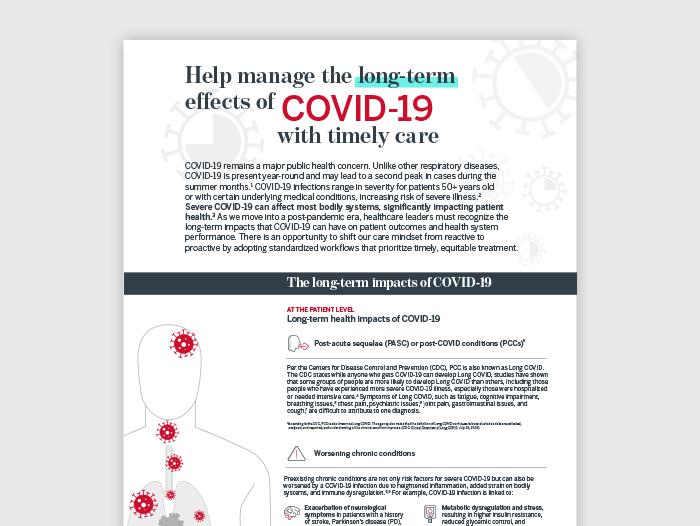Auto logout in seconds.
Continue LogoutA push to rebrand physician assistants (PAs) as "physician associates" gained traction earlier this month when Oregon became the first state to allow the title on medical licenses. Advisory Board's Eliza Dailey explains what's driving the push toward greater advanced practice provider (APP) autonomy and provides guidance on how organizations can more effectively deploy APPs.
What's driving the push to adopt the 'physician associate' title?
Rebranding PAs as "physician associates" has sparked a conversation around the evolving role APPs play in care delivery. While a change in title won't affect APPs' scope of practice, it does underscore the role that they increasingly play as autonomous providers on care teams.
For years, there has been a debate surrounding the title of "physician assistant." Many PAs have expressed that the term "assistant" doesn't accurately reflect their role in care delivery. They believe the term "physician associate" better represents the scope of responsibilities and autonomy that PAs hold.
Earlier this month, Oregon became the first state to legally adopt this change by allowing APPs to use the "physician associate" title on their license. Now, other states — including Michigan and South Carolina — are considering similar moves.
"Having a title that more accurately reflects our scope of practice will give patients a better understanding of the important credentials and responsibilities that PAs have," said Alisa Gifford, president of the Oregon Society of Physician Associates.
"Frankly, we get asked all the time, 'So you're a junior doctor, are you going to graduate from med school soon?'" Gifford said. "It's important to show them that we're associates, we are professionals."
Why organizations should take a hard look at how they deploy APPs
By 2031, our models predict that APPs will outnumber primary care physicians (PCPs) in all U.S. markets. This trend is particularly evident in rural markets, where APPs already outnumber PCPs.
One of the reasons for the growing trend towards APP autonomy is the cost-effectiveness of employing APPs over physicians. APPs are less expensive to employ than physicians and are one of the few health professions with a surplus of labor. As healthcare costs continue to rise, employing APPs on care teams can help reduce costs while maintaining quality care.
However, as with any change in care team models, patient education is essential. It's critical that patients understand the roles and responsibilities of each provider on their care team. APPs can provide high-quality care, but they will not replace physicians. Physicians will still play a vital role in managing patient care and supervising APPs.
The changing role of physicians in healthcare delivery provides an opportunity to rethink how care is delivered and embrace the benefits that APPs can bring to care teams. Physicians will need to work closely with APPs to manage a panel of patients, APPs, and a broader care team.
How organizations can more effectively deploy APPs
As the role of APPs continues to evolve, organizations must adopt new strategies for deploying and managing these providers to maximize their potential. Here are three tips to help organizations more effectively leverage APPs on their care teams.
1. Deploy APPs autonomously
Many organizations still rely on physician-driven pilots that result in APPs practicing below top-of-license and turning over. To realize their full potential, organizations must deploy all APPs as autonomous providers.
While they may co-manage a panel with a physician, they should see and treat patients independently during visits, acting as a primary care provider. How much autonomy organizations grant their APPs is directly linked to ROI.
2. Ensure APP deployment supports business goals
To make the most of APPs, organizations must deploy them against distinct business goals.
To do this, we outlined 3 ways to strategically deploy APPs in primary care, including increasing access to rural primary care, improving chronic disease management, and testing viability for new business. Organizations may deploy APPs differently in different practices, specialties, and markets based on business need. Assess the largest access, workflow, or capacity pain points at your organization and match the appropriate APP deployment model.
3. Adopt a centralized strategy for deploying and managing APPs as providers
Organizations should align many aspects of APP deployment, training, compensation, and leadership more closely with physicians. For more, read our research on implementing a four-part APP model, including:
- Standardized roles
- Centralized training
- Performance-based compensation
- Involvement in group governance
(Goldman, Axios, 4/16)
Advanced practice providers (APPs) are a valuable resource to help organizations expand access, better manage patients, and deliver cost-effective care. Access our library of resources to learn how leaders can shift to a centralized strategy for deploying and managing APPs while maximizing ROI.
Don't miss out on the latest Advisory Board insights
Create your free account to access 1 resource, including the latest research and webinars.
Want access without creating an account?
You have 1 free members-only resource remaining this month.
1 free members-only resources remaining
1 free members-only resources remaining
You've reached your limit of free insights
Become a member to access all of Advisory Board's resources, events, and experts
Never miss out on the latest innovative health care content tailored to you.
Benefits include:
You've reached your limit of free insights
Become a member to access all of Advisory Board's resources, events, and experts
Never miss out on the latest innovative health care content tailored to you.
Benefits include:
This content is available through your Curated Research partnership with Advisory Board. Click on ‘view this resource’ to read the full piece
Email ask@advisory.com to learn more
Click on ‘Become a Member’ to learn about the benefits of a Full-Access partnership with Advisory Board
Never miss out on the latest innovative health care content tailored to you.
Benefits Include:
This is for members only. Learn more.
Click on ‘Become a Member’ to learn about the benefits of a Full-Access partnership with Advisory Board
Never miss out on the latest innovative health care content tailored to you.



